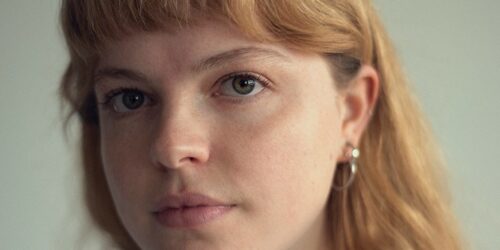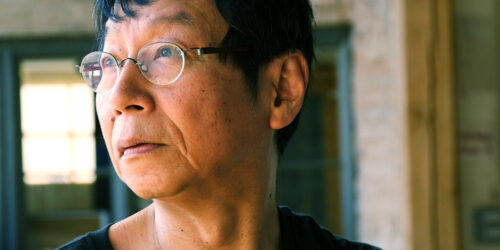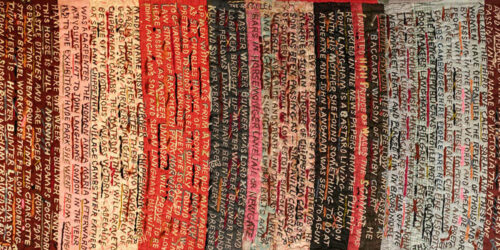
Author Megan Bradbury shares her experience of an NCW Norwich-Québec virtual residency exchange.
Our virtual resident Megan Bradbury writes about her experience doing an exchange with Juliette Bernatchez. She writes about her initial focus on borders and fortifications, describing her previous exploration of the unknown in her writing. Megan touches on the experience of writing semi-collaboratively alongside Juliette, and details the importance of virtual residencies as a mother, because they ‘make it possible for people like me who can’t travel easily with the body to do so with the mind.’
This virtual residency exchange was made possible with the support of the Québec Government Office in London and l’Entente de développement culturel entre le gouvernement du Québec et la Ville de Québec. Click here for the French webpage on the residency exchange.
Walls Fall Down
I set out with a clear intention: to write about the historical fortifications in Norwich and Québec and use this as a starting point to explore other kinds of borders (narrative, psychological, obstacles in memory and time). I have lived in Norwich for most of my life, but until this project, I have not written directly about the city, and so, in creative terms at least, Norwich is as foreign to me as Québec. This project would give me the chance to do two specific things: to try to see my city as a visitor might – new, fresh, without personal associations – whilst also remembering and writing about myself. The finished story, by blending fact with fiction, is an attempt to draw together two things that one is often weighing up as a writer: the known and the unknown.
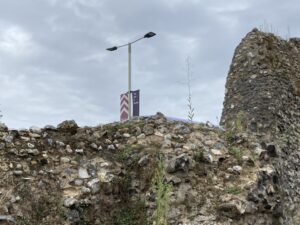
A popular piece of advice in writing circles is to write what you know, but this is not something I have ever felt comfortable doing. I have found my feet as a writer with projects about foreign things. My first novel, Everyone is Watching, is about the cultural history of New York City, a city where I have not lived for any great length of time, and which I researched largely from over 3,000 miles away in Edinburgh, which, at the time, was also a city I did not know well. My second novel, West, which I am currently writing, is also set in the United States, and while the themes in this book are more personal than those in my first (pregnancy, loneliness, love), it is largely informed by non-personal research. With these projects, I have found creative freedom in writing about the unfamiliar. I have found that something happens when you try to touch what is just beyond your reach. With this residency, I saw an opportunity to bring the focus closer, to face myself to some extent, refocus my creative gaze onto places and memories in a studied and considered way.
But being a residency exchange there would be another person in this process. Juliette Bernatchez, a person I had never met, would be writing too. We would each be writing our own projects, but these projects would be informed by our conversations and exchanges (we would each be haunting one another’s projects to some extent). I would visit the sites in Norwich pertinent to Juliette’s project about Julian of Norwich, and Juliette would walk around the fortifications in Québec. We would discuss what we saw and thought. As I worked, I found that I was thinking about these details with Juliette in mind, writing them down as if writing for her.
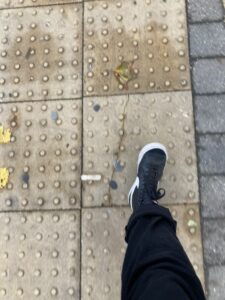
Involving another writer in one’s writing process is daunting. The imagination can be possessive, difficult, shy, not easily compatible with the interests of another artist. But I felt early on that Juliette and I, whilst strapped into separate boats, were travelling down the same river (from her perspective, the St. Lawrence, for me, the Wensum). While we set off from separate starting points, we found that we kept drifting back to the same subjects: the ghosts of the past, the ‘presentness’ of history, our own place in the city and in time. This convergence came about quite naturally and without deliberate coercion.
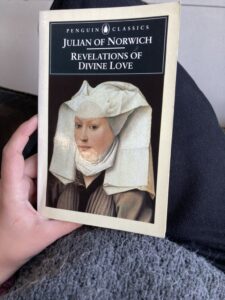

‘Revelation’ is not about me, but many of the details in it come from my own life: I live in Norwich; my loft is being converted into an office where I will write; I often walk in the locations this story describes; my mum did apply her lipstick in the loos of Debenhams, a department store that has recently closed (which is something I have found myself strangely moved by); my first job was as a shop assistant for Miss Selfridge (another company that no longer exists). But the story is fiction, reflecting a city, a conversation, and a mind space inspired by my conversations with Juliette.
This project… has also showed me the value of having as a guide a creative partner who has her own interests and questions.
I am the mother of two young children. I can’t travel or research projects in the way I once did. Virtual residencies like this one make it possible for people like me who can’t travel easily with the body to do so with the mind. This project has helped me to think about new ways of working, to not automatically turn to foreign things as the focus of my research but to look in more accessible places. But it has also showed me the value of having as a guide a creative partner who has her own interests and questions. I have enjoyed the sensation of writing for someone. And the fact of that someone being 3000 miles away feels important, like our ideas have travelled. I feel creatively refreshed as one who has taken an extended foreign trip. And like all good journeys, I spent most of that experience veering from the itinerary. I had a clear goal as I began this project, but I didn’t plan for the process of the exchange – the photographs, Whatsapp messages and Zoom calls – to become part of the story itself. As I wrote, the fortifications weakened, stones in the wall fell, and Juliette and her mystic stepped through.

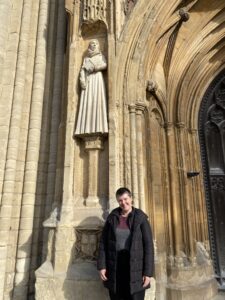
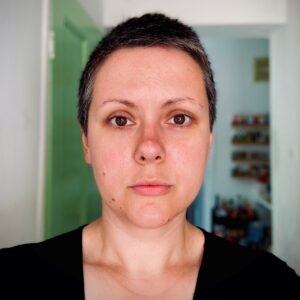
Megan Bradbury is a British writer, and author of the critically acclaimed novel, Everyone is Watching (Picador, 2016). Described as a ‘beating heart of a novel’ by Ali Smith and ‘kaleidoscopic’ by Eimear McBride, the novel was longlisted for the Rathbones Folio Prize, and was listed as one of the Guardian’s Best Books of 2016. Bradbury is a graduate of the Creative Writing Masters programme at the University of East Anglia, and has been awarded the Charles Pick Fellowship, an Author’s Foundation award, and numerous grants from Arts Council England. She reviews for the Irish Times and the Times Literary Supplement. She is also an experienced artistic collaborator and a previous recipient of the Escalator Literature Prize.



